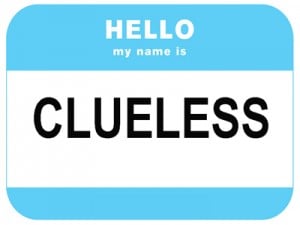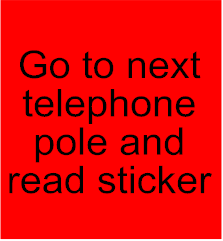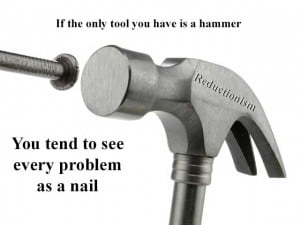In the May 26, 2015 Ask The Headhunter Newsletter, readers ask about branding themselves and about self-marketing. Two brief questions this week reveal the bunk in “branding” yourself when job hunting. The fallacy in this marketing tactic is that getting a job is about you. It’s not. It’s all about the employer and the work you need to configure yourself to do.
Question
What is your advice for promoting oneself through personal branding? How can a person do it elegantly, effectively, and without overdoing it?
Nick’s Reply
Michael Jordan has a brand. So does Madonna. You don’t have a brand. (I’ll prove that to you in a minute.) You have a reputation.
Here’s the problem with applying “branding” to yourself. Consider the definition of “personal branding” on Wikipedia:
“Personal branding is essentially the ongoing process of establishing a prescribed image or impression in the minds of others about an individual…”
The point of branding is to fix an image in people’s minds. It’s to define the person or the object and maintain that prescribed image — like Michael Jordan and Madonna.
 But consider what happens when you apply for a job. It’s the job that’s prescribed, not you. Your objective is to map your skills, abilities and qualities onto the work. Conveying a fixed image to an employer tells him he must fit his job to you. But what he wants to see is how you will fit yourself to the job. Winning a job means showing how you’ll apply yourself to the work; it doesn’t mean displaying your brand and waiting for the employer to figure out what to do with you. (See The $30,000 Strategy.)
But consider what happens when you apply for a job. It’s the job that’s prescribed, not you. Your objective is to map your skills, abilities and qualities onto the work. Conveying a fixed image to an employer tells him he must fit his job to you. But what he wants to see is how you will fit yourself to the job. Winning a job means showing how you’ll apply yourself to the work; it doesn’t mean displaying your brand and waiting for the employer to figure out what to do with you. (See The $30,000 Strategy.)
Sports stars are brands. Star entertainers are brands. When your name is worth millions, you’ll be a brand, too. In the meantime, figure out how to shape yourself to meet the requirements of a job.
Don’t come off as clueless. You can try to show the employer your brand, or you can do what really matters in an employment transaction: Demonstrate that you understand the employer’s problem. I think the single best way to promote oneself is to promote the company’s overriding objective:
- Show how your work will help produce profit for the business.
It’s so easy to forget this when the media scream at us that success is all about “branding.” Bunk.
Think instead about your reputation. A reputation for focusing on your employer’s bottom line is the best way to be successful yourself. (Unless, of course, you want to start your own business and hire others.) Don’t wait for management to figure out how you contribute to the bottom line. Tell them before they ask. (See Fearless Job Hunting, Book 6: The Interview: Be The Profitable Hire.)
One Ask The Headhunter reader explained what he did in a job interview:
Instead of worrying about my credentials or self-consciously seeking their approval, I talked about their business and how I could impact it. It was a working meeting [Book 6] more than a job interview, and I felt more like an employee than a job seeker. They called me the next morning with the offer. – R. David Fox
Question
From the recruiter’s perspective, what are the self-marketing techniques that really impress a potential employer?
Nick’s Reply
What did people do before marketers sold them self-marketing? Like branding, I think that self marketing is bunk. The purpose of such terms is to sell books and services about self marketing!
The basics have been around forever. What impresses me in a person is their reputation — and the hard work they have done to earn it. A person who has devoted time and effort to be among the best in their field — no matter what it is — is a person whose name is on the lips of others in the business. Good headhunters, and smart employers, find their best candidates through personal referrals. (See The preemptive reference.) But that’s not marketing; that’s earned respect.
- Rather than branding and marketing yourself, pick something and get very, very good at it.
If you have a good reputation, then I’ll find out about you. No marketing is necessary when respected people recognize your value. Their recommendation creates your future because they’ll hire you and tell others to hire you. (See Tell me who your friends are.)
You could try to focus on marketing your brand; or you could focus on being very, very good at your work — and by working with others that are, too. (See Work with people who are better than you.)
Here’s truth in the face of feel-good marketing: Winning a job is not about you. It’s about the employer and the work.
 I said I’d prove to you that you don’t have a brand. After brushing aside the marketing bunk, it boils down to this:
I said I’d prove to you that you don’t have a brand. After brushing aside the marketing bunk, it boils down to this:
- Are employers calling you with huge unsolicited offers?
- Are the media interviewing you and writing headlines about you?
Please take no offense, but you’re not Michael Jordan or Madonna. You might get famous, and one day your name might be worth millions.
On the other hand, you can prove today that you’re very valuable to an employer if you show you’ve got a clue about how to improve the business. Don’t talk about yourself. Produce a business plan that shows how you’ll do the job that needs doing.
How do you market yourself? Do you have a personal brand that anyone recognizes? What convinces employers to hire you?
: :















